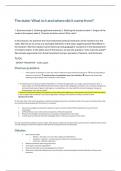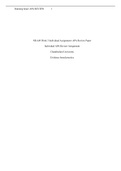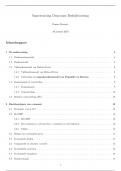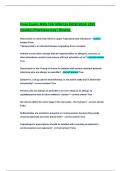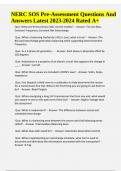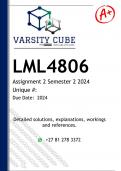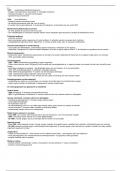Samenvatting
Summary SOC1: The state - revision booklet - Introduction to Sociology: Modern Societies I
- Vak
- Instelling
An in-depth revision booklet on the state, SOC1 (sociology). This provides all the details needed for the exam including: - key definitions - key theorists (Durkheim, Marx, Weber) - Summaries of all core readings - Detailed essay plans - Case studies to support essays. This is a study esse...
[Meer zien]
